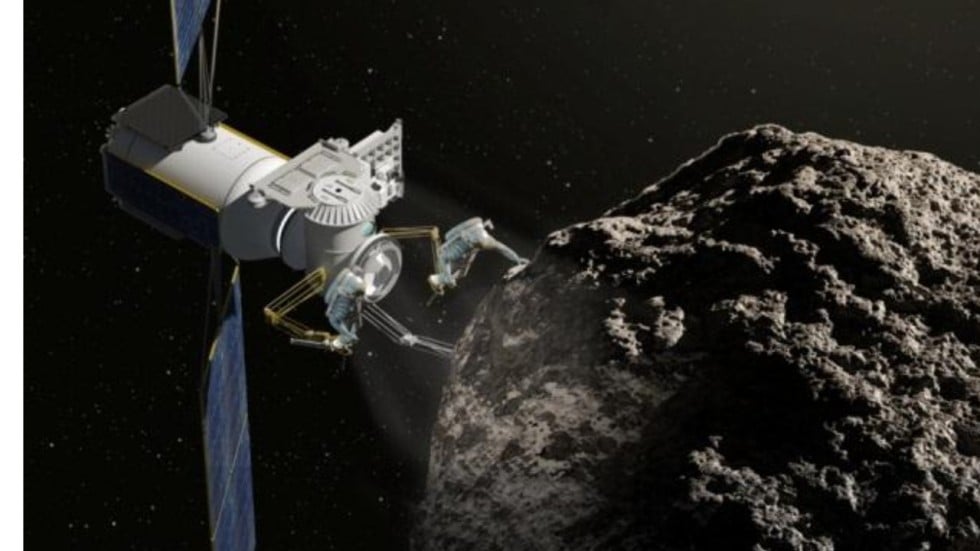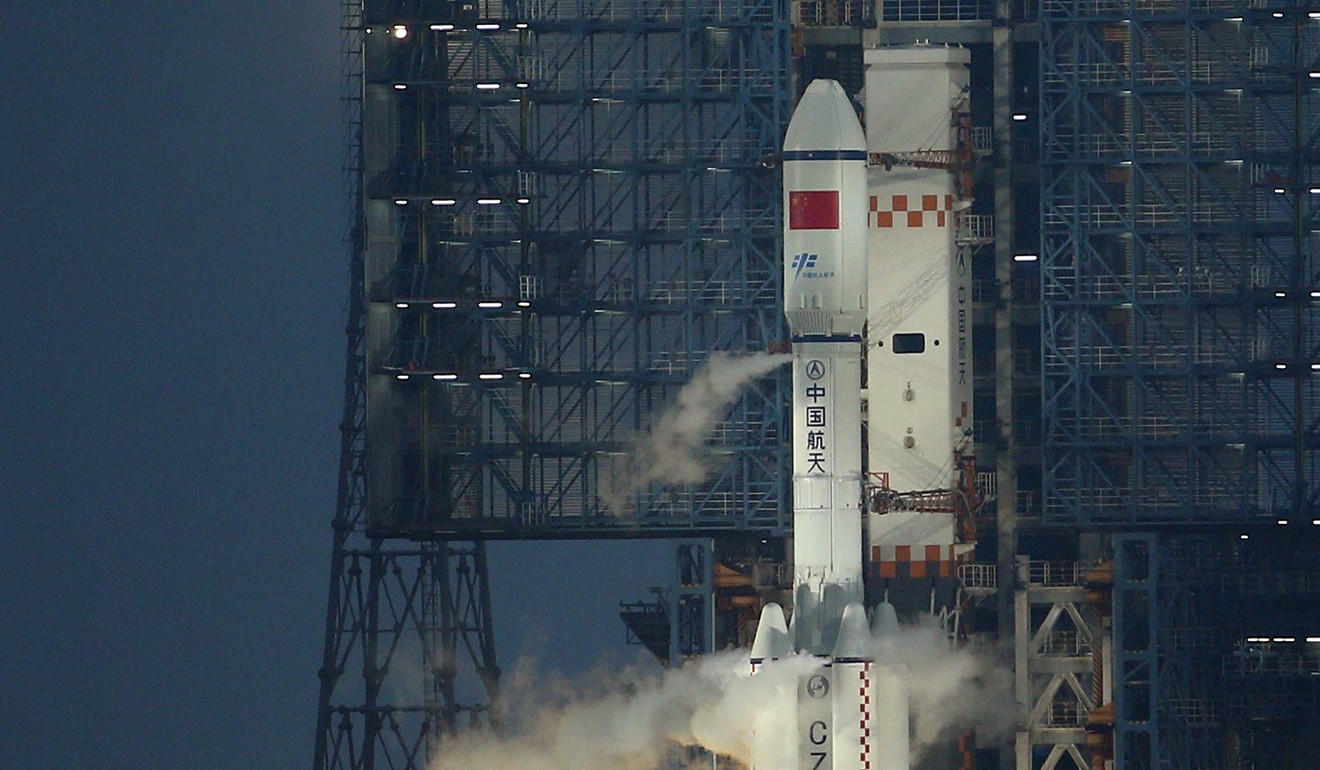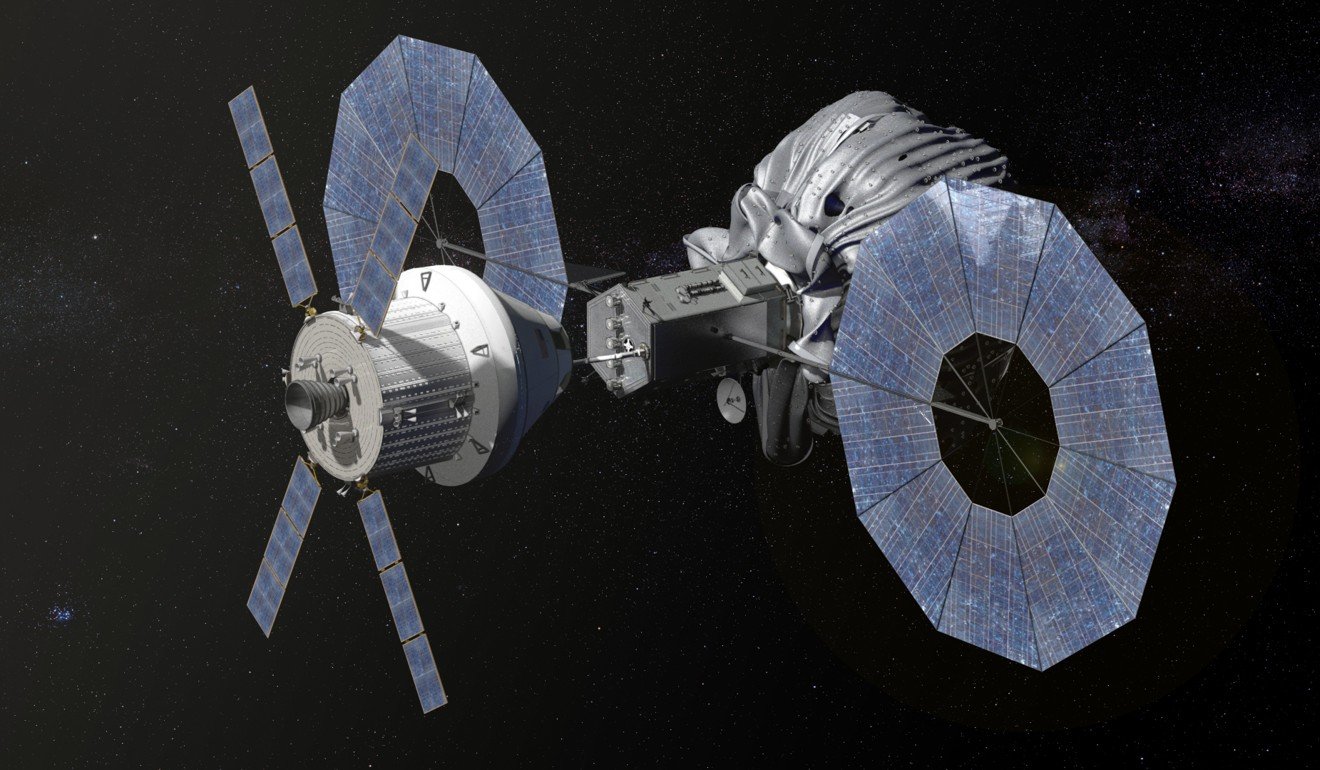China plans ambitious space mission to hunt and ‘capture’ asteroids by 2020
Ultimate aim is to land on orbiting space rocks and exploit their mineral wealth, top space scientists say
9 May 2017
A senior government space scientist said China was considering mounting a mission to “capture” an asteroid and try to fire it into the moon’s orbit within a decade, state media reported.
The ultimate aim would be to mine the asteroid for metal and minerals, or use it as the base for a space station.
Ye Peijian, chief commander and designer of China’s lunar exploration programme, said at a meeting of space authorities in Beijing this week that the nation’s first batch of asteroid exploration spacecraft would probably be launched in about 2020, according to state media reports.
Asteroids roam throughout our solar system, ranging in size from a metre to hundreds of kilometres across. Some cross close to Earth’s orbit, sometimes dangerously so.
Many near-Earth asteroids contain a high concentrations of precious metals, Ye told the
Science and TechnologyDaily, a newspaper run by China’s Ministry of Science and Technology.
He estimated some of the asteroids might justify the enormous cost and risk of space exploration as their economic value could amount to trillions of US dollars.
CHINA AT A GLANCE
Get updates direct to your inbox.
E-mail*
By registering you agree to our
&
Nasa announced a plan earlier this year to send two spacecraft to asteroids in 2021 and 2023.
The later mission will explore the asteroid 16 Psyche, which is 210km wide and probably a remnant from the core of an ancient planet no longer in existence.
The Chinese programme, however, is much more ambitious.
The plan is to capture an asteroid by landing and anchor a spacecraft on its surface, fire up multiple rocket boosters and project it into the orbit of the moon.
The excavation of mineral ores and its transportation to Earth would be carried out by robotic machinery, Ye was quoted as saying.
Ye estimated it could take a further four decades before China had the technology and infrastructure in place to mine the asteroid.
No details were given of which asteroid Chinese space scientists may be targeting.
China is also interested in using an asteroid as the base for a permanent space station, the report said. Ye was quoted by the newspaper as saying that the Chinese government was mulling this separate proposal to build a self-sustainable base on an asteroid.
The natural spin of an asteroid could generate a certain amount of centrifugal force that could be transformed into gravity, which was good for the mobility and general health of astronauts, he said.
A team of space scientists from the California Institute of Technology came up with a similar proposal in 2013 and submitted it to the White House under the former Obama administration.
China re-activated an air-tight research facility in Beijing on Wednesday and began a new experiment with artificial ecological system to pave the way for the design and construction of human settlement on the moon.
Four young men and women volunteers entered Lunar Palace 1 – a self-contained laboratory in Beihang University with a bio-regenerative life support system built four years ago – to join a year-long mission to evaluate the system’s performance after new upgrades, in particular its reliability and flexibility to cope with various accidents.
Chinese space technology still lags decades behind the US, but the Chinese government has poured enormous resources into the development of its space programme, including developing an orbiting space station. Analysts say the clear aim is to challenge US supremacy in space.
The first landing of a probe on an asteroid was conducted in 2001 by the US spacecraft NEAR Shoemaker.
The European spacecraft Rosetta put a fully-functioning landing probe on an asteroid in 2014, which sent back data for two days until its power supply ran out.
The Chinese lunar probe Chang’e-2 conducted a fly-by in 2012 over 4179 Toutatis, the largest asteroid known to pose a collision threat with Earth.
Huang Jiangchuan, the chief scientist at China’s deep space exploration programme, said at the same meeting attended by Ye on Monday that the nation’s asteroid mission would aim high for “landmark achievements”, state media reported.
But some space researchers have cautioned that the mission faced huge challenges, including developing technology to firmly anchor the probe to the surface of the asteroid.



